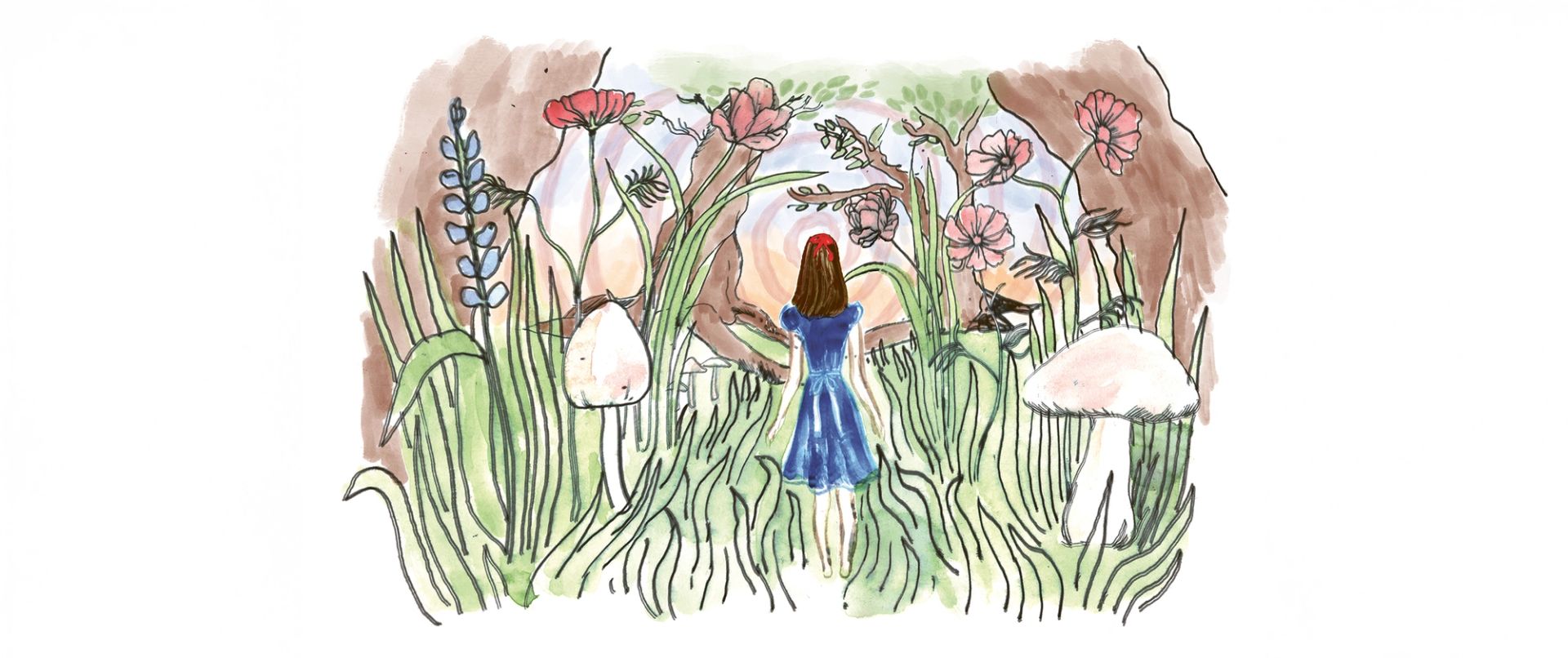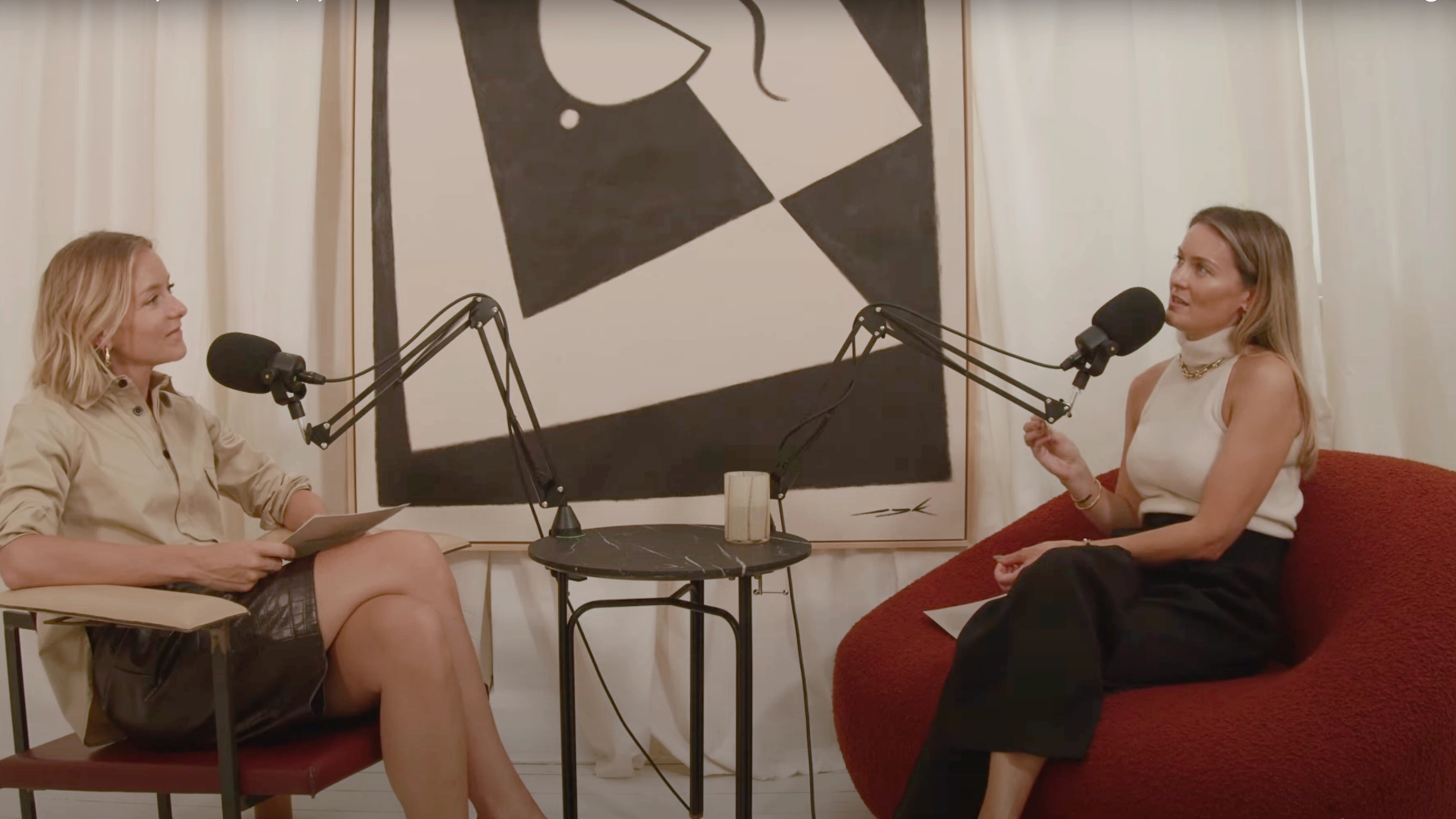
Heaven in a wildflower
An LSD trip in the 1970s led writer and relational psychotherapist Jane Haynes to discover a world elsewhere
- Words By Jane Haynes
It was the midsummer’s day of 1973 and circumstances were such that I was lounging in a Suffolk meadow with Jutta, the wife of R.D Laing, the most famous and infamous psychiatrist of the Sixties, with our small children. Without any intimation of planned intent, Ronnie invited me to stop drinking rosé and join him on an acid trip. I had listened to so many accounts of how Albert Hofmann had accidentally created the substance while researching for a cure for respiratory disease in 1943. I knew that Ronnie’s stuff was the real thing, delivered to him personally from the Sandoz laboratories in Switzerland, which still held Hofmann’s patent. I had read The Doors of Perception: Heaven and Hell by Aldous Huxley, as well as William Burroughs, The Naked Lunch.
I knew that a trip might go either way, but that was the point! The knowledge that there was a mysterious and uncontrollable feral energetic aspect to the solution, which would last for a minimum of eight hours and there could be no guarantee that I might not descend into a psychic hell. Today, that is what scientific research and laboratory experimentations are trying to control; to subdue the Janus duality into a predictable micro-dosage.
I also knew there was no way Ronnie would volunteer as rescuer if things took a bad turn. I was not, after all, his patient. When it came to using LSD in his Wimpole Street consulting room Ronnie was far more circumspect and responsible than his media representation. Jutta has subsequently told me that he was always, unlike his later tragic addiction to alcohol, respectful of the magic solution and they rarely took LSD together. Part of the ritual of indulging in psychedelic substances - outside of controlled research conditions - is the realisation that once you enter through the archway of psychedelic or opiate induced ‘eternity’, there can be no promised return...
I did not want to take acid as a therapeutic experiment but as an illumination, or confirmation of textual descriptions that there was a world elsewhere hidden to consciousness beyond the confines of the ego. I had fallen in love with Jean Cocteau while still in my teens and still have a first edition somewhere on my shelves of his accounts of opium addiction, Opium: Diary of a Cure.
"I thought about toddlers putting their hands up to their eyes, how they really do believe they become invisible by command"
Ronnie had not issued the invitation as my therapist. The concept of a psychedelic doula would not have met with his approval. His only offer was to accompany my descent into another level of consciousness with music. He travelled everywhere with a portable library and his clavichord. Full of apprehension I left the orchard and joined him indoors, in his improvised music room. He broke the seal of a fragile glass ampoule. Its delicate formation, like a container for dew, is still indelible. I tasted the nectar. With a chuckle, Ronnie muttered, “She’s taken to it like a duck to water.” Ronnie reached out greedily for shards of glass cradled in my palm. An image of his tongue, reptilian, caressing the shards for traces of fluid remains with me still. Ronnie grew bigger. Huge. I grew smaller and smaller. The clavichord turned into a coffin, but I was not afraid because Ronnie sat beside me, absorbed in his book. No curiosity, no questions; silent communion. The furniture grew into Titan proportions. I realised that as adults we take our spatial dimensions for granted. How different the proportions of domestic objects are to small children. I thought I might be turning into Alice in Wonderland. I was Alice.
I crawled under the table. I was inside of a looking glass. I thought about toddlers putting their hands up to their eyes, how they really do believe they become invisible by command. Now I was invisible. I did not belong to myself. I was sitting next to myself.
Much later, I went downstairs and observed my daughter. I knew that she was my daughter, but if the Pied Piper had led her away, I should have waved goodbye. I walked straight through myself, out of my maternal status and sense of duty to my life. High on acid, it was the only experience in my inventory of motherhood when I have stopped worrying about maternal attachment.
I left the house and went into the woods. The vibrancy of nature and entry into a lost domain of unknown consciousness has never, unlike any dream experience, dimmed. I experienced those cliché descriptions of moments of rapture, of unification with nature. I am not ashamed to use the word cliché since I have discovered that in printing language a "cliché" was a reusable plate used to reproduce text or images multiple times. Every leaf, fern, and petal seemed like an independent microcosm of the world. I picked up ordinary stones that turned into palimpsests of the universe. A palette of unimagined gems and tourmalines emerged and teased me as they became a living kaleidoscope. As I sat into dusk, I heard my name being called. And called. The children were hungry. Only then did I realise that the sun had set, and night was almost upon us. Dusk. Dox. Fox. Dusk has – ever since that midsummer’s eve - held the magic darkening of time in the palm of my hands. ‘Behold, I have graven thee upon the palms of my hand.’ Forever.
After the effects of the drug left my body, I became frustrated and haunted by my memories of another plane of reality but one from which I was now banished. I felt as though my trip had made me transparent. I had lost my virginity. I couldn’t conceive that my acid experience had not transformed me, that I was not now visibly marked by a hallucinogenic identity.
I discovered that there is a world elsewhere where I had held ‘infinity in the palm of my hand.’ (William Blake) and was now terrified of losing the vision. It was my first intimation that if we privilege ‘domestic' reality above the symbolic life of dream and metaphor, it is at our peril. A decade later this realisation was to become the cruciform of my perspective as a psychoanalyst.
To learn more about Jane Haynes and her work as a relational psychotherapist, visit Central Health London.
